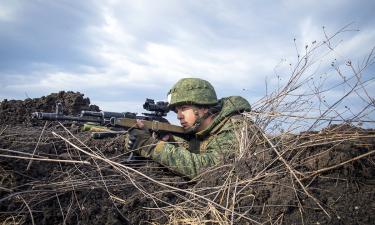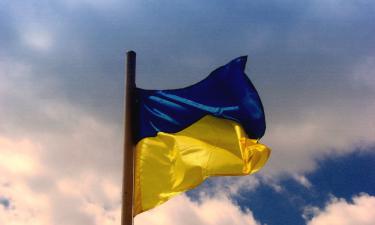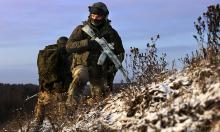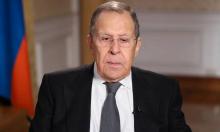Bulgarian medics return home from Libyan prison
Five Bulgarian nurses and a Palestinian doctor arrived Tuesday in Sofia after eight and a half years in prison in Libya.
The medics, sentenced to life in prison in Libya for contaminating children with the AIDS virus, arrived on board a plane with French first lady Cecilia Sarkozy and the EU's commissioner for foreign affairs, Benita Ferrero-Waldner.
The six came down the steps from the airplane and were welcomed on the tarmac by family members who hugged them, one lifting the Palestinian doctor off the ground.
They were given bouquets of flowers, and Bulgaria's president and prime minister were on hand, greeting the nurses and French first lady Cecilia Sarkozy, who had been part of the delegation that negotiated the group's return.
"I waited so long for this moment," nurse Snezhana Dimitrova said before falling in the arms of her loved ones.
Five Bulgarian nurses and a Palestinian doctor sentenced to life in prison in Libya for allegedly contaminating children with the AIDS virus left Tripoli for Bulgaria on Tuesday on board a plane with the French president's wife, France's presidential palace said.
The delegation, which had arrived in Tripoli on Sunday to negotiate their return home, included the European Union commissioner for foreign affairs, Benita Ferrero-Waldner, and chief French presidential aide Claude Gueant. The plane was heading to Bulgaria, the Elysee Palace said.
France had been seeking the return home of the six - in jail for the past eight years - as a final goodwill gesture from Libya after it commuted their death sentences in favor of life in prison.
The accord included measures to improve the medical care of children with AIDS in Libya, the French presidential palace said.
French President Nicolas Sarkozy and European Commission President Jose Manuel Barroso "welcome the gesture of humanity by Libya's highest leader and are committed to doing everything to help children with AIDS," the statement said. They also expressed gratitude to Qatar for mediating the case.
The statement said the medics' departure would not have been possible without Ferrero-Waldner's efforts and Cecilia Sarkozy's commitment.
Before the nurses were handed over, Libyan officials said on condition of anonymity that French President Nicolas Sarkozy was to visit Libya on Wednesday - but only if the medics were sent home.
Bulgaria made an official request Thursday for Tripoli to repatriate the medics to serve their sentences in Bulgaria. It granted citizenship to the Palestinian doctor, Ashraf al-Hazouz, last month.
In a phone conversation with the French president, Bulgarian President Georgi Parvanov "expressed appreciation for the active role and the personal engagement of Mrs. Cecilia Sarkozy and the European commissioner in charge of foreign affairs, Benita Ferrero-Waldner, for solving the case," his office said.
This was the French first lady's second trip to Libya on behalf of the prisoners, and, like the first trip, it drew criticism from the rival Socialist camp. One opposition lawmaker charged that the president, in office since May 16, was profiting from the work of other nations and the EU, which have worked on behalf of the nurses for years.
The French president talked on Monday by phone with European commission President Jose Manuel Barroso about the timetable for the release of the prisoners and their "immediate" return home, a statement from the French president's office said.
Libyan officials said Cecilia Sarkozy met with Gadhafi on Sunday. The officials, who spoke on condition of anonymity because of the sensitivity of the talks, would not elaborate. The president also spoke by phone with Gadhafi.
Bulgarian Foreign Minister Ivailo Kalfin said in Brussels Monday that the delegation was hoping to finalize talks with the Libyans and expressed hope a deal was on the horizon.
"We are at the stage now where the decision is clearly political," Kalfin said. "I hope there will be enough goodwill from the Libyan side today."
Cecilia Sarkozy and Gueant made an initial trip to the country on July 12, meeting with Gadhafi and the medics. They also met with some of the infected children, their families and the prisoners.
Libya accused the six of deliberately infecting more than 400 Libyan children with HIV. The medics, jailed since 1999, deny infecting the children and say their confessions were extracted under torture.
Subscribe to Pravda.Ru Telegram channel, Facebook, RSS!





